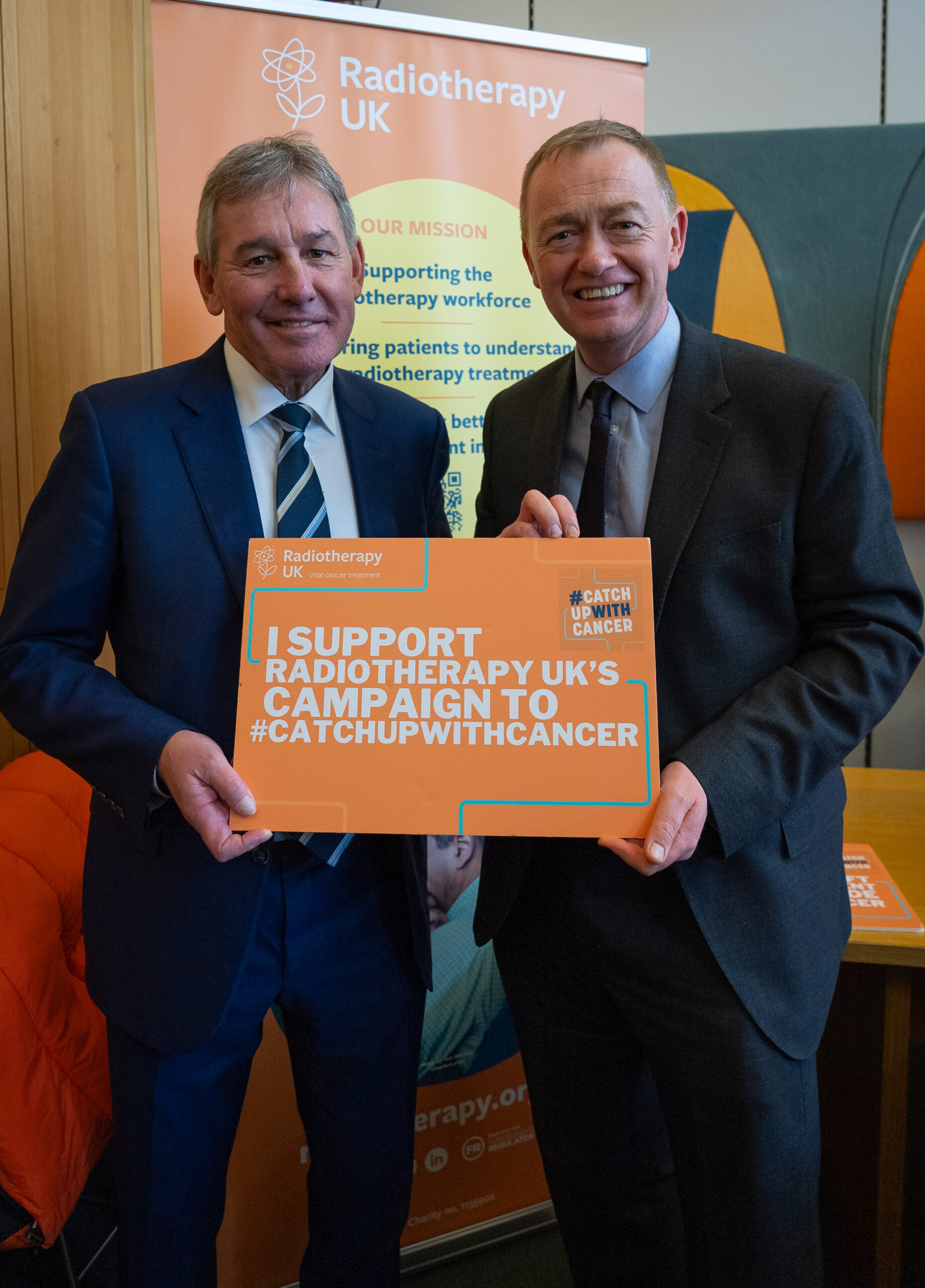
As the UK government develops its cancer treatment and investment plan, campaigners with Radiotherapy UK and MPs gathered outside Parliament seeking greater support.
Campaigners emphasised the 62-day target from cancer referral to first treatment has not been met in nearly 10 years, with international cancer experts calling for “big, brave and bold” cancer plans to address the gap.
Gathering outside Parliament on Tuesday 4 February, campaigners said that solving this crisis would mean investment in modern technologies, in particular radiotherapy.
'Deadly delays and systematic failure'
Professor Pat Price, chair of Radiotherapy UK, said: “After nearly a decade of deadly delays and systemic failure to treat cancer patients on time, this World Cancer Day must be the turning point. The next 10 years must be a decade of decisive action, ensuring every patient gets the timely care they deserve.
“While the government has promised to develop a National Cancer Control Plan – something I strongly support – this plan must be big, brave and bold. We can no longer afford to tinker around the edges, and we certainly can’t spend more time developing consultations and calling for ideas.”
Spencer Goodman, SoR professional officer for radiotherapy, said that any plan cancer treatment plan put forward by the government should prioritise radiotherapy as a cost-effective treatment through sustained investment in modern equipment, therapeutic radiographers, and a skilled multi-professional team.
He added: “As a professional body we would advocate for clear workforce development strategies, ensuring sufficient recruitment, training, and career progression for therapeutic radiographers. In addition, timely and sustained funding for ongoing research, innovation, and integration with other cancer therapies should be key components to enhance patient outcomes and service provision.”
'Warmth and professionalism of staff'
Radiotherapy UK supporters joined MPs at Parliament in calling for improved access to radiotherapy across the country, with MP for Westmorland and Lonsdale Tim Farron raising the issue in Westminster Hall for debate.
He explained three quarters of those in his constituency live “dangerously far” from radiotherapy treatment.
“I am always struck by the quality of the treatment and the warmth and professionalism of the staff, but also by the gruelling impact on my constituents, on whom the daily lengthy journeys take a terrible toll,” he said.
“The workforce is part of the solution, as well as the challenge, to the problem that we face… In every corner of the United Kingdom we need to ensure that we have the staffing, the kit and the level of technology to meet needs close enough to where people live for people to be kept safe and treated in a convenient way.”
Lagging behind
He added that the problem across the country was lack of capacity, technology and an effective workforce plan. Britain is behind its neighbours in number of radiotherapy machines and in how advanced that technology is.
In France, for example, there are twice as many linear accelerators per head as in the United Kingdom. Across the OECD, roughly 9 per cent of cancer budgets are spent on radiotherapy; in the UK this figure is 5 per cent.
Mr Farron continued: “If we cannot cope with treating the number of cancer patients we are seeing now, how will we deal with the projected 30 per cent increase in cancer cases by 2040? The good news—the very, very good news—is that it does not need to be this way.
“The upcoming cancer plan, of which we have heard an outline today, is an opportunity to supercharge cancer services and transform a culture of normalising unacceptable delays into one that drives continuous cancer care improvements. However, without decisive and radical action and leadership, lives will continue to be lost needlessly.
“At the heart of the radical, lifesaving transformation that we need through the cancer plan must be the elevation of the unsung hero, the Cinderella of our cancer services: radiotherapy.”
Empowering the workforce
Andrew Gwynne, parliamentary under-secretary of state for health and social care, emphasised the accessibility is about ensuring the country has the right workforce to deliver treatment.
He explained NHS England is increasing its number of training places, and improving the quality of education for assistant practitioners, diagnostic and therapeutic radiographers, as working to improve the retention of radiographers and radiologists through initiatives such as increasing investment in career development
He added: “Today (February 4), we launched our national cancer plan call for evidence. We welcome views from all honourable and right honourable Members [MPs], as well as from clinicians, patients and their families—it is critical that we get the views of people who have lived experience of accessing cancer care—charities, researchers, members of the public and, of course, the excellent all-party parliamentary groups that champion cancer treatment and outcomes in this House.”
(Image: Bryan Robson OBE (L), Tim Farron MP (R), via Radiotherapy UK)
